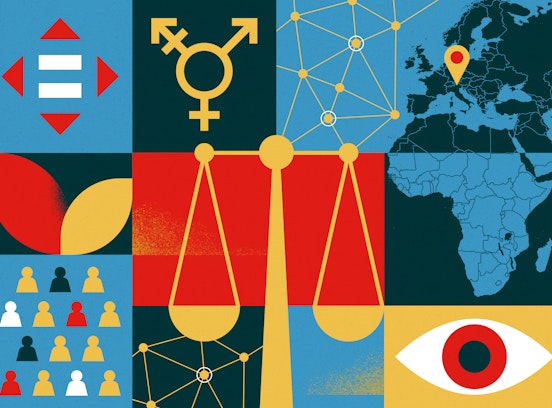Center for Advanced Studies - News & Events - Leadership in a Digital World
Leadership in a Digital World
International symposium demonstrates ways to actively shape the future
The digital world has permeated our lives in many ways and shapes our routine. While digitalisation seems to be a matter of course in some areas, we encounter it with great scepticism in others. The reason for this is not only a lack of knowledge, but also a lack of leadership. What leadership in our digital world should and can look like was recently discussed at an international symposium at Steinbeis University in Stuttgart, in which Eurac Research was also involved as a co-organiser.
The academic symposium of the School of International Business and Entrepreneurship (SIBE) at Steinbeis University with the Steinbeis Foundation and Eurac Research gave all participants an interesting insight into the role of leadership in the (digital) future. After the conferences organised at Eurac, "Digital Religion" and "Digitalization, Spirituality and Democracy", "Leadership in a Digital World" focused on disruptive innovation, institutional collaboration and employee enablement. However, leadership in a digital world, as a wide-ranging complex of topics, goes far beyond these themes, as the speakers, including Klaus Mainzer, Emeritus of Excellence at the Technical University of Munich or Sylke Piéch, Senior Research Manager Educational Technology Lab at the German Research Centre for Artificial Intelligence, proved, who spoke about various aspects of human-machine collaboration.
Under the title "Digitalisation and Leadership: What is the special role of tourism?", Harald Pechlaner, Head of the Center for Advanced Studies at Eurac Research, gave an insight into the complex interplay between the digital revolution and tourism. On the one hand, digitalisation is a fact that raises the question of how leadership has to change in order to adapt to the new circumstances; on the other hand, it is a means and thus opens up completely new possibilities for leadership. At the same time, tourism is one of the first sectors to be significantly influenced by digitalisation. For example, digital customer tracking was first used in the tourism industry. New platforms such as Airbnb or Booking.com do not just sell accommodation, but rather a lifestyle. The influence of social media, especially Instagram, holds new challenges for once insider tips. Another special feature of the tourism industry is product creation, in which the guest is always actively involved. Pechlaner used these and numerous examples to underline how destination leadership and dealing with digitalisation in tourism can be groundbreaking for other industries.
Following the conference, the first editorial board meeting of the new open access journal "Leadership, Education, Personality: An Interdisciplinary Journal", published by Springer Verlag, was held, where Eurac Research with Harald Pechlaner serves as associate editor. The journal publishes academic articles on topics related to digital transformation, leadership and work design. It was founded at the beginning of 2019 in a cooperation between Springer Verlag and the School of International Business and Entrepreneurship (SIBE) at Steinbeis University.










